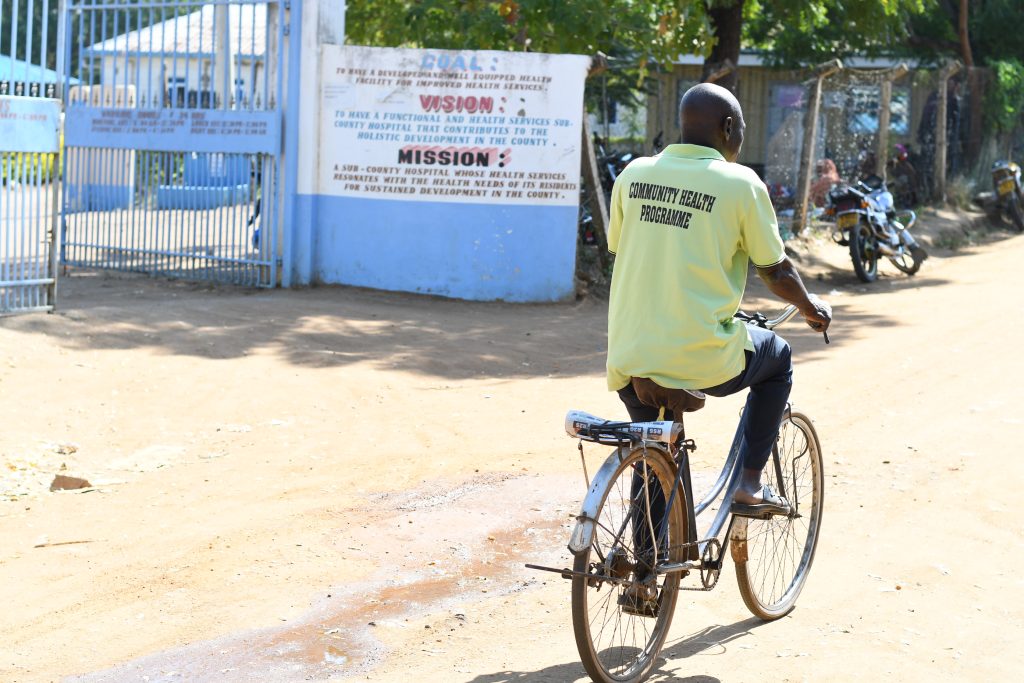Slightly over a decade ago, Kwale County had only 58 public health facilities and hospitals. The County Government of Kwale now manages 177 public health facilities. This is a significant transformation towards improving access to services for the people of Kwale, indeed this sub-national government is set on the path to deliver health for all. Now Kwale seeks to unlock and harness dividend of these health facilities through the Facility Improvement Financing law.
“We have made a decision as the Department of Health, that we are not constructing new health facilities. Our focus is on equipping, renovating and improving services in all our existing facilities.”
Says Dr. Francis Gwama, County Executive Committee Member (CEC-M) for Health.

Over the years, Kwale’s commitment to finance the health sector has been steady. With almost one-third of total county revenue allocated to the health sector, this department struggling with a high-wage bill and recurrent expenditures there is still a need to mobilize more domestic resource for health and create a fiscal space to finance development that seeks to improve health outcomes of the people of Kwale.
Dr. Gwama adds that high maternal and neonatal mortality rates, human resources for health to fill service needs gap in their health facilities and supply of drugs and non-pharmaceuticals are some of the challenges on top of their political priority as the provide health services in Kwale. To solve these and other challenges, Kwale therefore requires a paradigm shift on how they finance health. The Facility Improvement Financing (FIF) Act of 2023 is a driver for Kwale and other counties to enact own legislation that would catalyse improved service deliver.

What is the FIF status?
Political commitment and good will is essential to deliver Universal Health Coverage (UHC). Since 1st July 2024 Kwale allowed health facilities to retain revenue collected and utilize at source- ideally in the spirit of FIF. To safeguard this best practice, the Governor of Kwale tasked the CEC-M for Health to steward the process of enacting legislation and let Kwale join the list of many others counties with a FIF law.
“For the past three years, we have been collecting from 18 million to 21 million every financial year.”
Shares Suleiman Mtende, the Accountant at Lunga Lunga Sub-County Hospital.
Suleiman continues to highlight.
“For now, coming in of the FIF era, we have a target of 25 million this financial year, that’s our budget. We are going to collect the 25 million and utilize.”
“We are anticipating that the FIF is going to be a game changer. As you know, that we have been having several constraints in relation to having money from the exchequer, there have been so many delays and inconsistent disbursements of funds to our facilities. Now, we will be having funds in our account.”

Political support on FIF
The CEC-M Health established a FIF taskforce which has made progress and have a draft Bill in place. In a show of great political support, the Government of Kwale led by the Deputy Governor, County Secretary, CEC-M Health and Chief Officers relayed the Governors commitment and urgency to have FIF law in place. With legal input for the County Attorney and Council of Governors, the taskforce held robust and comprehensive discussions on the draft Bill which next step is presentation before cabinet, allow public participation and then sent to the County Assembly for approval.
“This is a process that has come at the right time. It will save the facilities from the shame and the bureaucracy of the county procurement process.”
Says Hon. Mwagawary, Member of the County Assembly and Chair of the Health Committee in Kwale.
“This FIF Bill will have my support and that of my colleagues in the Committee. We know with this kind of model, various facilities will improve and be accredited to offer more services. They must have to attain a certain standard for them to be accredited and accommodated by the Social Health Authority (SHA). And by doing that, we will generate more revenue.”
To effectively roll-out FIF, Kwale and other county governments need capacity building on their hospital boards, health facility committees and other duty bearers as defined in the FIF law to ensure resources mobilized are utilized for the sole purpose of transforming health outcomes. USAID Health Equity and Resource Optimization (USAID HERO) project in collaboration with other partners will provide Kwale with technical assistance on FIF implementation.
Contributors:
Author & Interviewer:
Meshack Acholla, USAID HERO Communications Specialist.
Interviewees:
Dr. Francis Gwama, CEC-M Health, Kwale County
Hon. Mwagawary, MCA & Chair Health Committee
Suleiman Mtende, Accountant, Lunga Lunga Sub County Hospital
